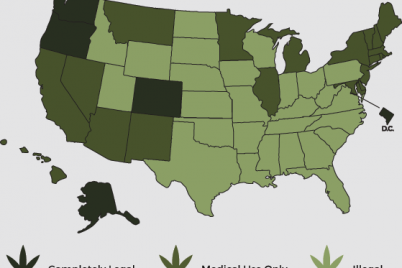By Suni Jo Roberts
Staff Writer
A diverse set of issues both concrete and abstract were seen among the sea of posters at the Women’s March on Washington in Washington, D.C. on Saturday, Jan. 21, which took place one day after the inauguration of President Donald J. Trump.
“Attend your security briefings,” a sign read, representing the more concrete. “Protect Kids Not Guns,” said another. “Climate Justice Now,” said a sign. Crowd scientists estimate that 470,000 people were in D.C. for the march at 2 p.m., according to the New York Times.
The issues and demands that brought women to the march were vast. But one unifying force brought them all together: the election and inauguration of President Donald J. Trump.
The March’s initial name, Million Women March, drew criticism from people that thought this was another example of mostly white organizers co-opting a march that took place in 1997 in Philadelphia, organized by black women, that sought to shed light on issues the black community face, according to CNN.
The organizers took that criticism seriously and quickly changed the name to, “the Women’s March on Washington.” Three women of color (and experienced organizers) also came on as co-chairs for the event.
This drive to be more inclusive could be seen on many signs at the march. “Intersectional Feminism,” a card with the logo of the National Organization of Women on it read. “I am not free while any woman is unfree, even when her shackles are very different from my own,” said a poster–a quote from the black feminist theorist Audre Lorde.
Civil Rights activist, Angela Davis, spoke at the Women’s March on Washington. Her speech mirrored those ideas that women have intersecting identities and that in order to be a unified force women need to recognize the struggles of women who are dealing with not only sexism but with racism as well.
“This is a women’s march and this women’s march represents the promise of feminism as against the pernicious powers of state violence,” said Davis. “And, inclusive and intersectional feminism that calls upon all of us to join the resistance to racism, to Islamophobia, to anti-Semitism, to misogyny, to capitalist exploitation.”
Alex Prediger, 26, came to the march from New York. Being there for women and other marginalized groups was important to her.
“Being a woman, there are many ideas that Donald Trump has promoted that has potential legislative changes.” said Prediger. “Affecting women’s health and stuff regarding our bodies and our decisions could be taken away from us. I feel strongly about his views on minority and marginalized people and immigrants. I come from a point of privilege but would like to support those groups as much as possible.”
One day after taking office President Donald J. Trump signed an executive order known as the Global Gag Rule or formally as the Mexico City Policy which bans foreign NGO’s receiving certain American aid from counseling people about abortion, according to Slate.
Prediger also had thoughts on President Donald Trump’s ability to lead.
“I mean regarding any issue I think that if you are going to be a leader of a country you need to have a level of consideration for all perspectives instead of just going into it with the close mindedness that he has,” said Prediger.
Lynne Giles, 76, from Santa Cruz, California was hopeful this march was only the beginning step in continued political action.
“We can really hope it’s a new era,” said Giles. “When I was feeling despair I happened to read [former President Barack Obama’s] last address and he finished with hope. And I thought, ok he is telling me what I need to get up and do. And [former First Lady Michelle Obama] also, that talk that she made after the horrible thing Trump said about women. And she was so outraged and the final thing she said is ‘we have got to roll up our sleeves.’”
See also the Washtenaw Voice’s coverage of the sister marches in Lansing and Ann Arbor, Michigan.

